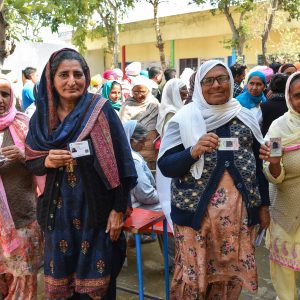Indian Prime Minister Narendra Modi has proposed a bill to reserve one-third of the seats in state assemblies and the lower chamber of parliament for Women.
According to the report, the action revives a previous proposal that is anticipated to improve his party’s popularity among women.
Due to opposition from some core political groups, the contentious legislative idea has been on hold for decades. In order to become law, it must be approved by both chambers of parliament as well as the majority of state legislatures.
Its resurgence occurs months ahead of the May 2024 general elections, when Modi will be running for a third term. According to analysts, as resistance to the law has waned over time, there are better possibilities for it to succeed in parliament.

It is the most recent action taken by the government in a string that the nationalist Bharatiya Janata Party, has dubbed “pro-women.”
“There have been many debates in the past regarding women’s reservation and I appeal to lawmakers to support the bill,” Modi said in parliament during a five-day special session which began on Monday.
“We want more and more women to join the development process of the country,” Modi said before his law minister presented the bill to lawmakers.
Meanwhile, women account for almost half of India’s 950 million registered voters but make for only 15% of parliament and about 10% of state legislatures, pushing the world’s largest democracy to the bottom of the global list on gender parity in legislatures.
However, the 33% reservation for women will not apply to the upper houses of parliament and state legislatures.
Law Minister, Arjun Ram Meghwal said the 542-seat lower house has 82 women members at present and if the bill is approved the number will rise to at least 181.
Successive governments have sought to address this imbalance since the mid-1990s by trying to make a law that reserves a third of seats for women at the national and state levels. The bill was first introduced in parliament in 1996.
However, it has been repeatedly blocked by Hindi heartland parties, with some of their lawmakers aggressively disrupting proceedings and snatching and tearing copies of the bill before being physically escorted out of the chambers.
Opponents argue that the decision will mainly benefit educated and metropolitan women while depriving their poor rural counterparts of the so-called backward castes.
They want a quota for women from lower castes within the overall quota for women to create true gender balance.
Activists and analysts, on the other hand, claim that the leaders of these parties are patriarchal and that they reject the proposal because they fear losing power to women if a third of the seats are blocked.
However, the strength of these parties has dwindled over time, and the latest proposal is unlikely to attract as much opposition, according to analysts.





